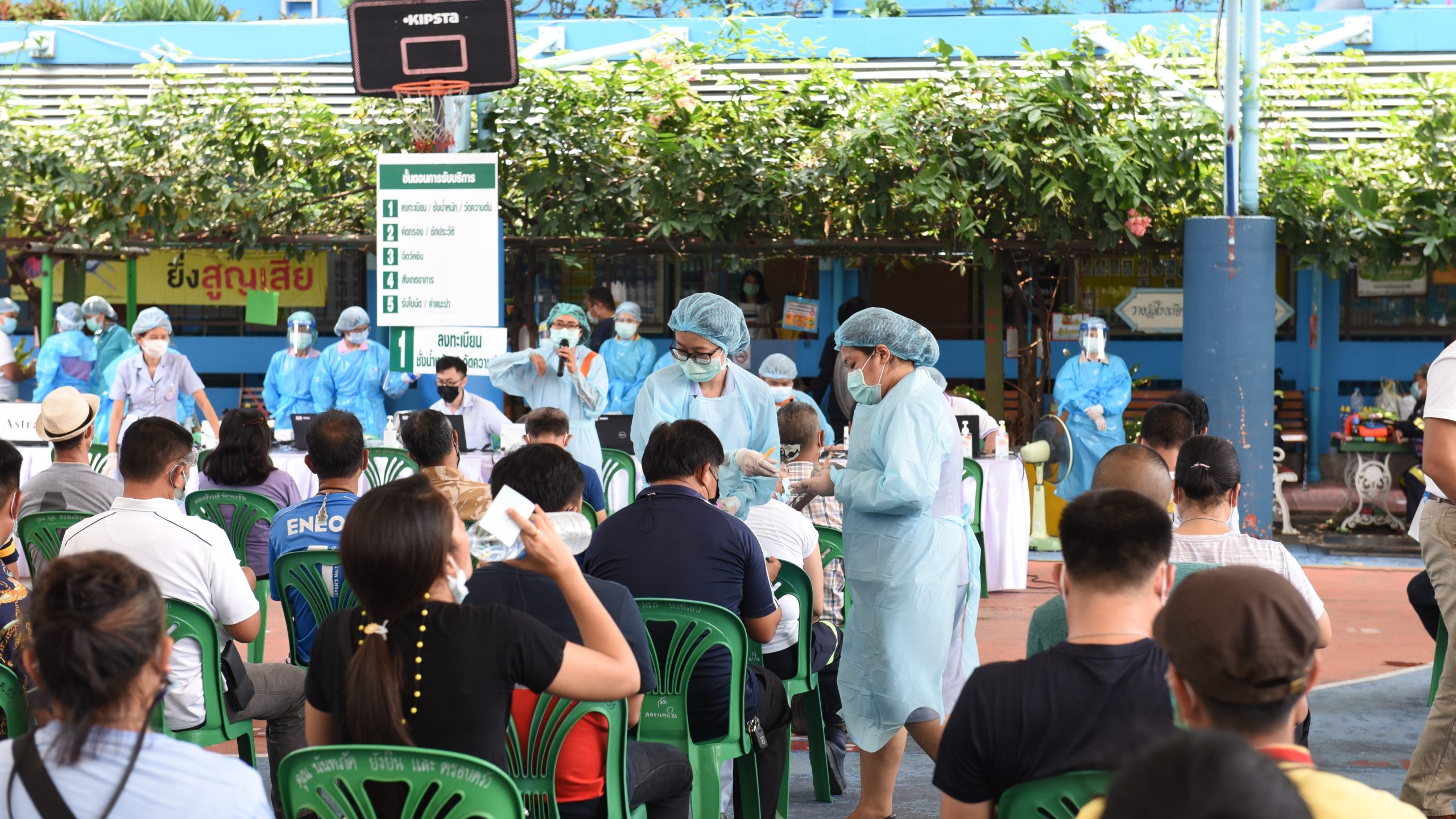
SINGAPORE, July 13, 2021 – Thailand’s economy should recover gradually, after the severe downturn caused by the COVID-19 pandemic. The virus has largely kept international borders closed to the country’s important tourism industry. Nevertheless, the economic rebound and resumption of activities of Thailand’s trading partners has helped boost the country’s goods exports. These findings are based on the preliminary assessment by the ASEAN+3 Macroeconomic Research Office (AMRO), after its virtual Annual Consultation Visit to Thailand from June 21 to July 7, 2021.
The mission was led by AMRO Lead Economist, Dr. Jae Young Lee. AMRO Director, Mr. Toshinori Doi and Chief Economist, Dr. Hoe Ee Khor participated in the policy discussions. The talks focused on growth prospects; developments in vaccinations and infection rates, and the uneven impact of COVID-19 on the economy; the fiscal, monetary, and other policies to support growth; and structural reforms toward the new normal.
Economic outlook
“Thailand’s economy should recover gradually but unevenly across sectors. We project growth of 1.5% in 2021 and 4.8% in 2022,” says Dr. Lee. “Besides faster vaccination and effective virus containment measures, the recovery should be supported by strong fiscal measures, accommodative monetary policy, effective credit and debt restructuring policies, and a well thought out and effective implementation of structural policies.”
Economic performance has varied considerably across sectors, with the contact-sensitive tourism and related sectors staying depressed, while exports-related sectors have rebounded, supported by strong external demand. Despite a weakening of the current account balance, the external position remains strong, underpinned by substantial international reserves.
The banking sector remains sound, with strong capital buffers and high loan-loss reserves. Asset quality in the system has been resilient to the effects of the economic downturn, helped by the central bank’s debt relief programs and regulatory forbearance. However, the non-performing loans ratio of small and medium enterprises (SME) remains high and is on an upward trend.
Fiscal policy has become highly expansionary alongside with the precautionary measures to support the economy due to the COVID-19 pandemic, with significant increase in both budget and off-budget expenditures, supported by a total of additional THB 1.5 trillion loans (almost 9.0 percent of 2019 GDP) for COVID-19 relief measures.
Risks and vulnerabilities
Downside risks to growth stem mainly from uncertainties due to COVID-19 infections and the pace of vaccination. Thailand should also guard against the risk of scarring of the economy impeding its recovery. In particular, the recovery could take longer than expected because of the need for corporates and households to repair their balance sheets. The impaired ability of corporates and households to repay their loans could impact financial sector lending post-regulatory forbearance. Considering the significant increase in public debt arising from the large COVID-19 fiscal stimulus as well as the fiscal implications of population aging, the authorities would need to consolidate the country’s fiscal position to safeguard medium to long term fiscal sustainability, post-pandemic.
Policy recommendations
Expansionary fiscal policy is essential in financing healthcare and other pandemic-related expenses, and in supporting the economy. Priority should be given to accelerating the pace of vaccination and boosting public infrastructure investment. An effective and strengthened vaccination campaign is necessary for a sustained end to the economic crisis wrought by the pandemic, and should be frontloaded in the country’s efforts to re-open borders to international tourists.
Once the pandemic is contained, the authorities can focus the reduced fiscal space more efficiently on speeding up the pace of infrastructure investment, and facilitating structural reforms. The authorities should guard against a premature withdrawal of fiscal support to the economy. In the medium term, the authorities should rebuild fiscal buffers to ensure fiscal sustainability.
While monetary policy is appropriately accommodative, the authorities should be ready to act if the current or new waves of infections cause the economy to weaken further. The central bank’s soft loan conditions have been relaxed and asset warehousing program aptly introduced. Their effective and timely implementation will mitigate the impairment of SME balance sheets to prevent the sector from posing a drag on economic recovery. To boost the effectiveness of the soft loans program, a higher share of credit guarantee by the government can be considered to reduce bank credit risk and dampen risk aversion. Should the need arise, unconventional policy measures — such as forward guidance and quantitative easing — could be considered to expand the available policy space, prevent a spike in long-term yields or stabilize pockets of turbulence in the financial markets.
Post-pandemic, economic restructuring should be stepped up for the economy to adjust to the new normal and enhance growth potential. Digitalization and other policy needs should be taken into consideration to better adjust to the post-pandemic environment. This includes facilitating the re-skilling and upgrading of workers who were laid off or underemployed during the pandemic. Labor market frictions could also be reduced and labor market information systems enhanced to facilitate adjustment to the new normal. These programs can be harmonized with medium-term programs to upskill manpower to facilitate the Thailand 4.0 and S-curve initiatives.
AMRO would like to express its appreciation to the Thai authorities and other counterparts for their excellent cooperation and warm hospitality. The visit has deepened AMRO’s understanding of Thailand’s macroeconomic and financial situation, policy framework, and structural reforms.
About AMRO
The ASEAN+3 Macroeconomic Research Office (AMRO) is an international organization established to contribute towards securing macroeconomic and financial stability of the ASEAN+3 region, which includes 10 members of the Association of Southeast Asian Nations (ASEAN) and China; Hong Kong, China; Japan; and Korea. AMRO’s mandate is to conduct macroeconomic surveillance, support the implementation of the regional financial arrangement, the Chiang Mai Initiative Multilateralisation (CMIM), and provide technical assistance to the members.
